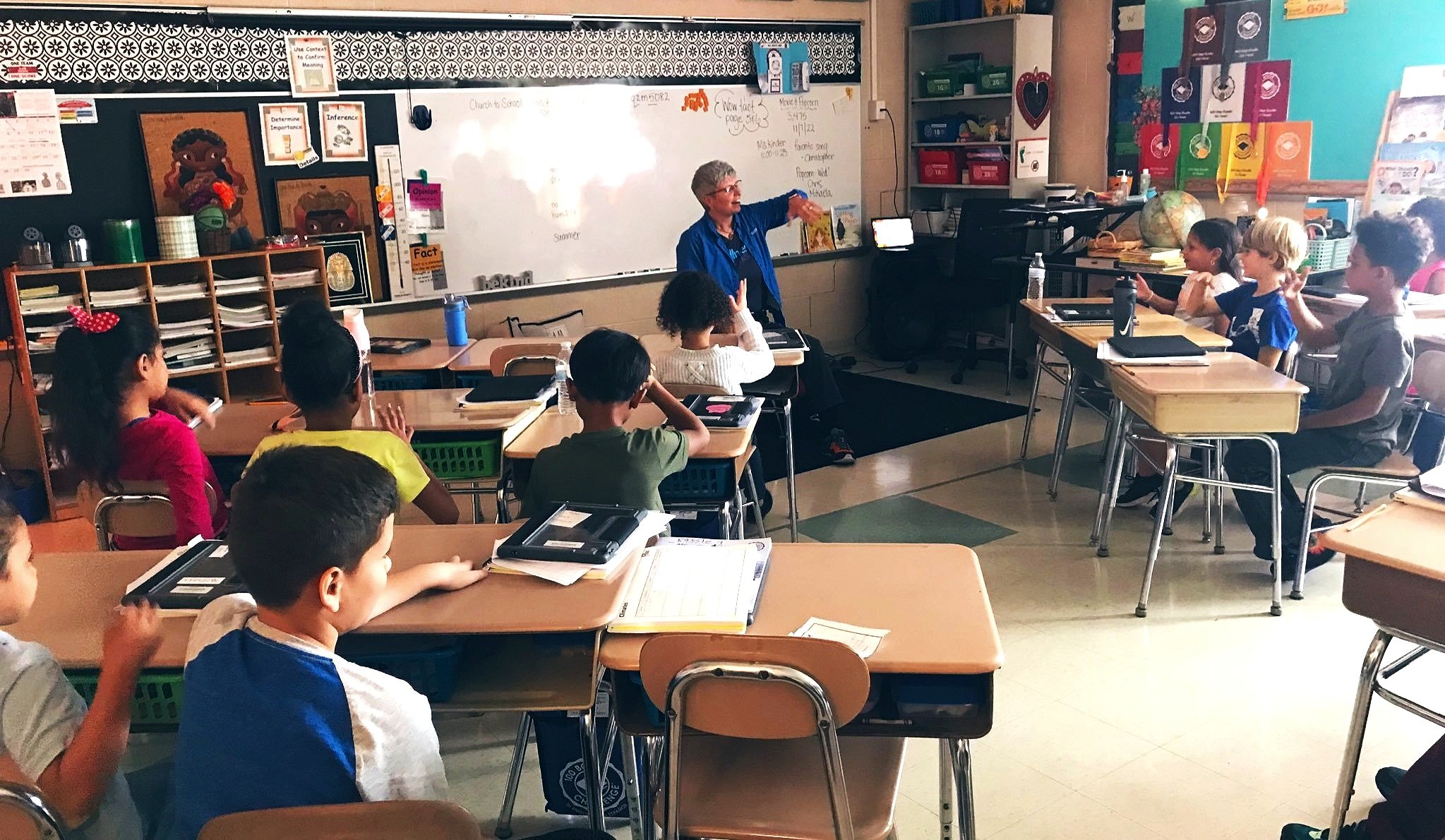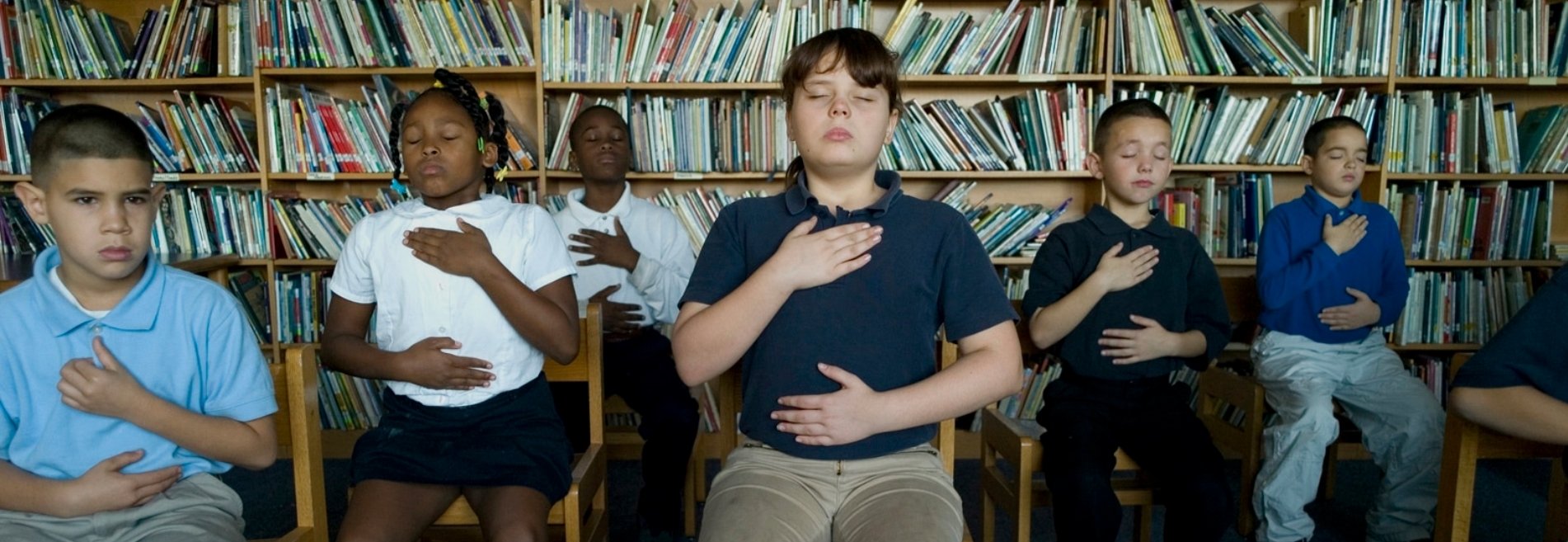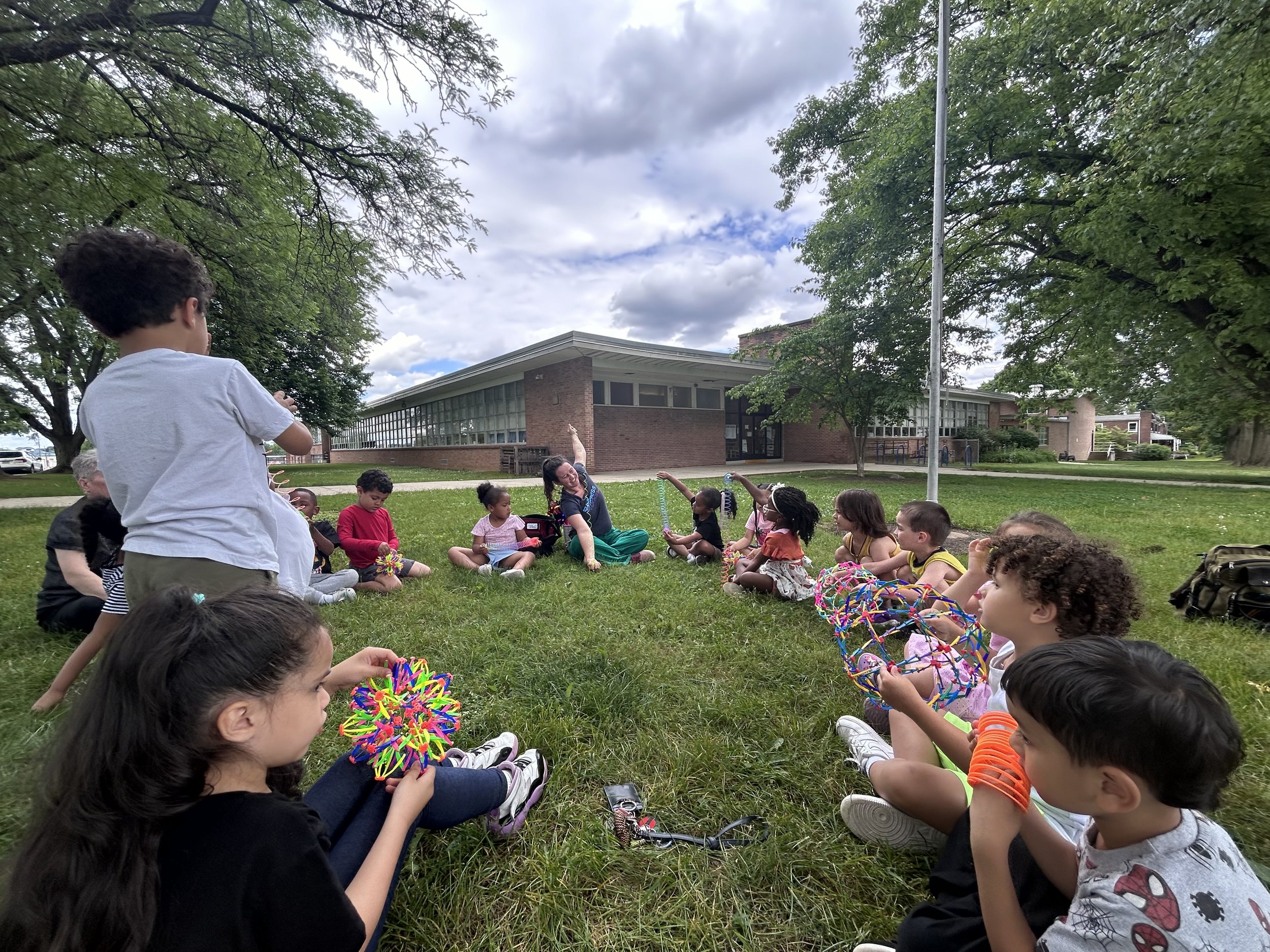
Student Sessions
Lessons for Classrooms
20-30 min weekly, 4-6 weeks | (on-site where available)
These proven lessons increase engagement, comfort and success in students and teachers by providing consistent and relevant active-learning lessons. Weekly practice in a safe environment creates new habits and a mindful culture change within the classroom. Then during challenging times (in the classroom and out) students are more able to bring the learning brain back online when stress knocks it off. Lessons are taught by Wellness Works instructors with the students and teachers participating.
Lesson Components
Choice-based participation - engage resistant students, a range of safe choices
Exploration and understanding - mindbody wellness (science and themes)
Mindful practices - awareness, attention and concentration
Healthy breathing - self-regulation, calming, alertness and becoming present
Mindful Movement - Mindbody connection, awareness of self, needs and care
Rest and quieting - foster self-care, balance and resilience
Reflection - group or self-inquiry, understanding an sharing
Mindful Classroom Mentoring
Structure: Wellness Works instructors provide - individualized mentoring, sample lessons, co-teaching opportunities and on-going support to teachers in 2-4 sessions.
Goal: We gradually release teachers with appropriate support, to integrate and lead their students in mindful practices and lessons. We can provide additional support through problem-solving related to: de-escalation, dealing with resistance and enhancing one's ability to address trauma in the classroom.
Evidence-based Research
2 Decades | 1000 Classrooms | 20,000 Students
-
This reader-friendly guide introduces the Re-Set Process, a neuroscience-based approach developed by experienced educators to support students with trauma histories in Grades K–8. The process, refined through nearly a decade of field testing, offers a structured yet flexible four-step method that blends behavioral approaches, mindfulness practices, and trauma-informed care. Educators can learn to understand trauma's impacts, interpret behavior through a trauma-informed lens, and implement proactive and reactive strategies, integrating the Re-Set Process with other support systems while promoting a positive classroom culture and fostering students' regulation skills.
-
Empower your child daily with 365 affirmations aimed at boosting self-esteem and resilience. This positive affirmations book for ages 7-9 offers inspiring messages alongside mindful activities, connecting children with historical events and figures to reinforce themes like positivity and courage. Through practical exercises and affirmations tied to key moments in history, "I Am I Can" equips children with tools to foster self-belief and manage stress, nurturing their mental well-being.
-
This mindfulness activity book for kids offers engaging exercises to help them focus, understand their thoughts, and appreciate the world around them. Packed with fun activities like making a mindfulness jar and practicing mindful eating, it includes an illustrated journal section for children to reflect on their experiences. "Calm: Mindfulness for Kids" guides children through each activity, fostering enjoyment, awareness, and tranquility while providing parents with tips to support their child's mindfulness journey.
-
This middle grades curriculum (Grades 6-8) draws from SEL educational standards, addressing emotional and social awareness. It delves into the impact of emotions on relationships, social skills and emotion regulation. Students will practice mindfulness skills and explore social emotional competencies throughout the program.
-
Mindful Moods offers teachers a mindful, social emotional learning curriculum for grades 3-5. This curriculum draws from SEL educational standards, addressing emotional and social awareness, an exploration of the impact of emotions on self and our relationships with others, as well as practices of social skills and emotion regulation. It lays developmentally-appropriate groundwork for integrating mindfulness skills and social emotional learning in each lesson.
-
This six-lesson curriculum from Wellness Works in Schools, an innovative school-based program that teaches mindfulness skills to students to help them handle life's challenges. The first book for teachers from Wellness Works, Peace Work is designed to help children from preschool through third grade learn mindful awareness skills to increase self-awareness, self-regulation, and self-care through a personal and community sense of PEACE. These objectives are achieved through active-learning sessions where children experience personal attention practices, healthy breathing, and mindful movement as well as discussion, reflection and resting.
More Resources
Handbook of Mindfulness-Based Programmes
Mindfulness Interventions from Education to Health and Therapy (Chapter on Evidenced based research by Dr. Cheryl Desmond, Routledge, 2020)
Teaching Mindfulness Skills to Kids and Teens
a chapter on special education in Teaching Mindfulness Skills to Kids and Teens (2015)
After the Pandemic: Visions of Life Post COVID-19
a chapter on the New ACEs in After the Pandemic: Visions of Life Post COVID-19 (May 1, 2020)
GoNoodle makes videos and games that get kids up and moving and developing their wellness, mental health, and resilience.
GoNoodle’s SuperNoodle offers teachers and students an easy to implement SEL curriculum, that foster positive social emotional health and well-being.
Audio practices for MindfullyADD.com

Who’s talking about Wellness Works?
NATIONAL GEOGRAPHIC
Wellness Works in Schools featured on the cover of National Geographic's International Editions, Feb. 2010.
New York Times
In the Classroom, a new focus on quieting the mind. June 16, 2007
Patricia Leigh Brown
Child Mind Institute
Mindfulness in the Classroom - How it helps kids regulate and focus on learning. April 23, 2012
Juliann Garey
Lancaster Newspapers
Cultivating Mindfulness Beneficial, June 29, 2015
Kimberly Marselas















